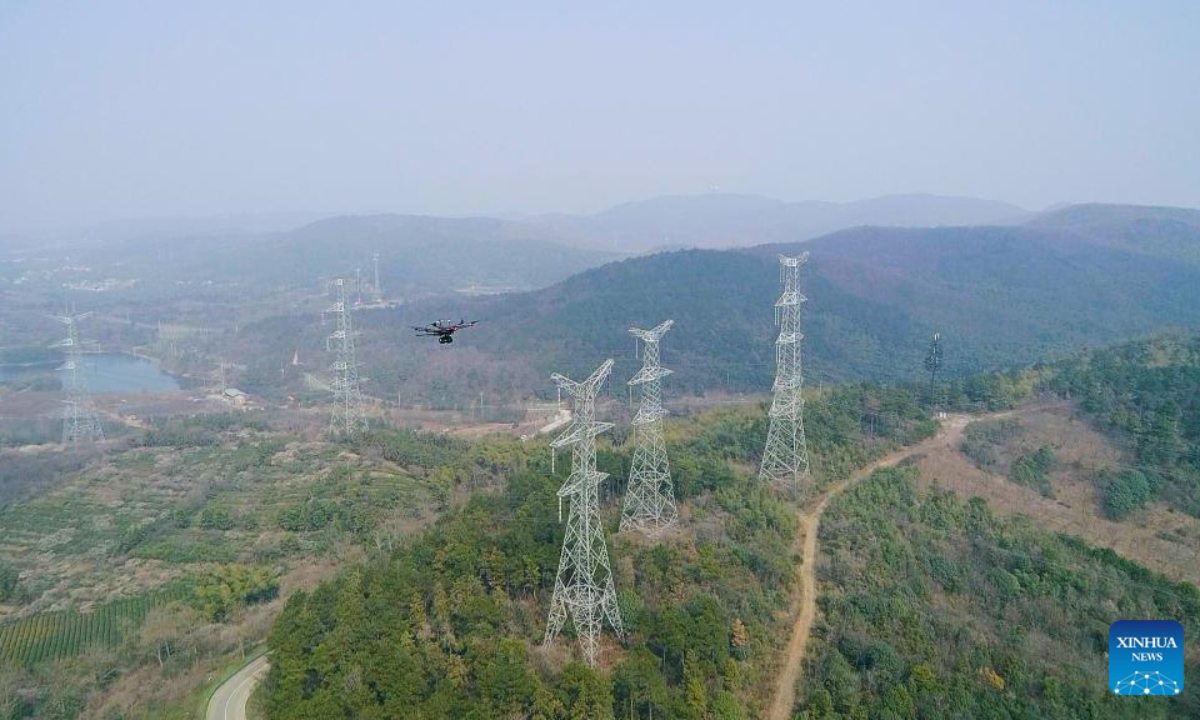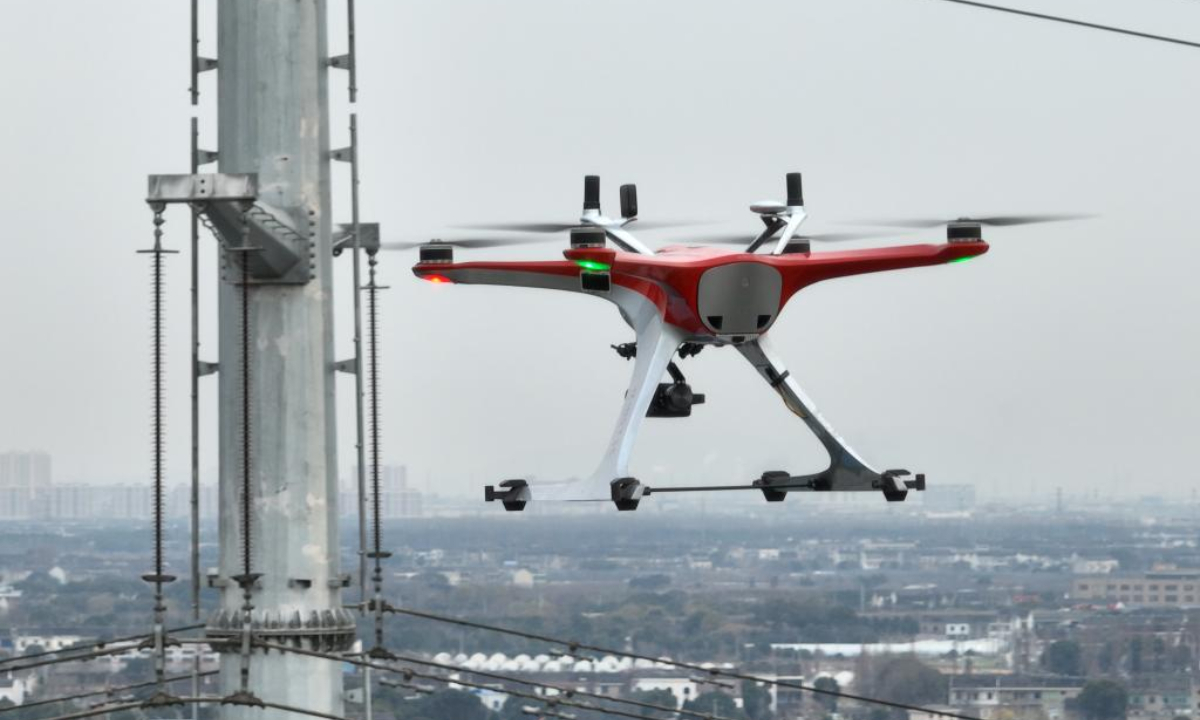
An unmanned drone with centimeter-level high-precision positioning capabilities inspects the automatic transmission lines of the electric transmission towers in east China's Jiangsu Province, Jan 4, 2023. Photo:Xinhua

An unmanned drone with centimeter-level high-precision positioning capabilities inspects the automatic transmission lines of the electric transmission towers in east China's Jiangsu Province, Dec 29, 2022. Photo:Xinhua
China has successfully developed its first holographic digital power grid in the eastern province of Jiangsu. It is expected to greatly improve the smart operations and inspections of the grid, according to the State Grid Corporation of China (State Grid).
The virtual power grid has integrated technologies such as Beidou satellites, cloud computing and artificial intelligence. It has realized the three-dimensional restoration of the local power grid, which includes 100,000 kilometers of overhead transmission lines and 280,000 electric transmission towers.
Unmanned drones have also been deployed to inspect the automatic transmission lines of the electric transmission towers. The drones can fulfill functions such as automatic route planning and real-time monitoring, said Jiang Haibo, deputy general manager of Jiangsu Fangtian Power Technology Co., Ltd., the project's builder.
Jiang said the drones have centimeter-level high-precision positioning capabilities and an inspection efficiency about six times that of manual inspections.
The digital grid can also simulate and predict the real grid operation environment under extreme conditions such as typhoons and freezing weather, providing reference for disaster-prevention solutions, said Wu Qiang, deputy director of the equipment department of State Grid Jiangsu Electric Power Co., Ltd.
The maximum load of the Jiangsu power grid is expected to hit 112 million kilowatts over the upcoming peak season. To meet the increasing electricity demand this winter, the holographic digital power grid can help shorten troubleshooting times by about 10 percent and greatly improve the safety and reliability of the power grid during peak hours, Wu said.
